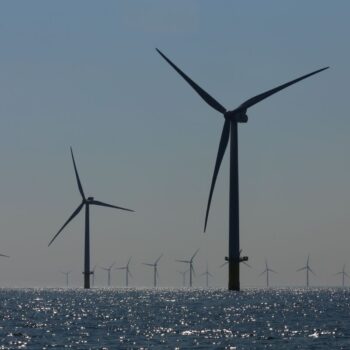Political short-termism is a curse in the fight for low energy bills. It was painfully exemplified when David Cameron and George Osborne ‘cut the green crap’ in 2013 to remove environmental levies. This move wrecked the UK’s insulation programme, cutting insulation rates by 90% and adding £2.5 billion to household energy bills.
It has reared its ugly head again following the three by-elections on 20th July. Despite losing two seats to Labour and the Liberal Democrats following huge swings, the Conservatives managed to cling on to Uxbridge, the former seat of Boris Johnson. Retaining the seat by just 495 votes, the victory was put down to Uxbridge voter concerns over the cost of the Ultra-Low Emission Zone, despite the vital need to combat London’s illegal levels of air pollution, which leads to a staggering 4,000 premature deaths every year.
The political lesson should have been that better communication is needed with residents on the health benefits of the scheme and that higher levels of compensation should be funded by the Treasury to help people scrap their polluting cars. This is an issue upon which you would expect cross-party consensus, when lives are being lost and children across the capital are choking on traffic fumes.
But what has transpired instead is a massive push by climate sceptics on the right of the Conservative Party and their allies in the media to exploit this by-election result for short-term political gain, pushing back not just against this anti-pollution scheme, but the entire net zero agenda.
These ‘Not-Zero’ zealots have been grumpy of late because they have been comprehensively losing the argument on the need to accelerate action to reach net zero. Polling consistently shows that British citizens are strongly in favour of ambitious action to stop climate change. It has also become increasingly clear that overall net zero investment can bring down energy bills, with renewables by far the cheapest way to generate power.
The Office for Budget Responsibility also concluded this month that failure to decarbonise could cost twice as much as investing in net zero due to the high cost and volatility of reliance on fossil fuels. We are in an international race to net zero and as the Conservative MP Chris Skidmore has pointed out: “Net zero isn’t just an environmental policy but a key economic driver of future growth and investment that can transform Britain for the better.” The implication is clear. In the future, if you don’t have a net zero economy, you won’t have an economy at all.
But climate sceptics have used the Uxbridge result on a pollution tax to double down on their false narrative that net zero is a huge cost to consumers. Suddenly, policies essential to the net zero mission and bringing down energy bills are under attack.
The 2030 ban on the sale of new petrol and diesel cars – essential for the UK to keep a competitive edge in car manufacturing – is in the firing line, despite it being twice as expensive to run a petrol car than an electric vehicle. So far Rishi Sunak has resisted these calls but the attacks continue. Michael Gove also signalled that the policy to require landlords to make the,ir homes energy efficient is likely to be delayed, even though E3G research shows that an energy efficient home can save tenants on average £570, a lifeline for the over one million rental households in fuel poverty in the UK. There are also questions being raised about whether we need to slow down the transition to low-carbon heating – despite the fact our dependence on gas boilers led to the government spending £40 billion on subsidising energy bills over the last winter. The UK government can help with the upfront costs of electric vehicles and heat pumps, ensuring they are affordable for all, until markets have grown and the technologies reduce in price – just as has happened with solar panels and wind turbines. The answer is to increase such support, not press the pause button.
The government has also handed out a surge of free pollution permits to UK industry, crashing the price of carbon compared to Europe. This will incentivise more use of fossil fuels while reducing investment in the UK’s net zero industrial transition, making us less competitive. In the latest salvo, Rishi Sunak has confirmed that the Government will give the go-ahead to 100 oil and gas exploration licenses in the North Sea, despite the fact this will do nothing to bring down the cost of oil and gas in the UK because it is traded on the international market. This just gives the government an excuse to slow down the transition to net zero, keeping us dependent on high-cost fossil fuels for longer. It is also against the advice of the Climate Change Committee and United Nations scientists, who have made it clear that new fossil fuel drilling is not compatible with the target agreed in the Paris Agreement to prevent global heating from surpassing 1.5°C. Exceeding it will cause catastrophic economic damage, including to the UK economy, raising costs for everyone.
The right-wing media are now giving huge space to columnists who have been attacking the net zero agenda, despite the irony that these columns are placed alongside front-page pictures of UK tourists fleeing forest fires in Greece, as Europe suffers one of the worst heat bombs in human history.
We are witnessing another bout of political short-termism as the Conservative government, far behind in the polls, looks desperately for any opportunity to hammer the opposition. But if they think axing green policies will gain broader public support then they are in for a shock. The public wants politicians and the media to stop lying about the costs of climate policies and to take the long-term view to safeguard the future for our children. Delaying ambitious climate action can only end with higher energy bills, followed by electoral oblivion.


